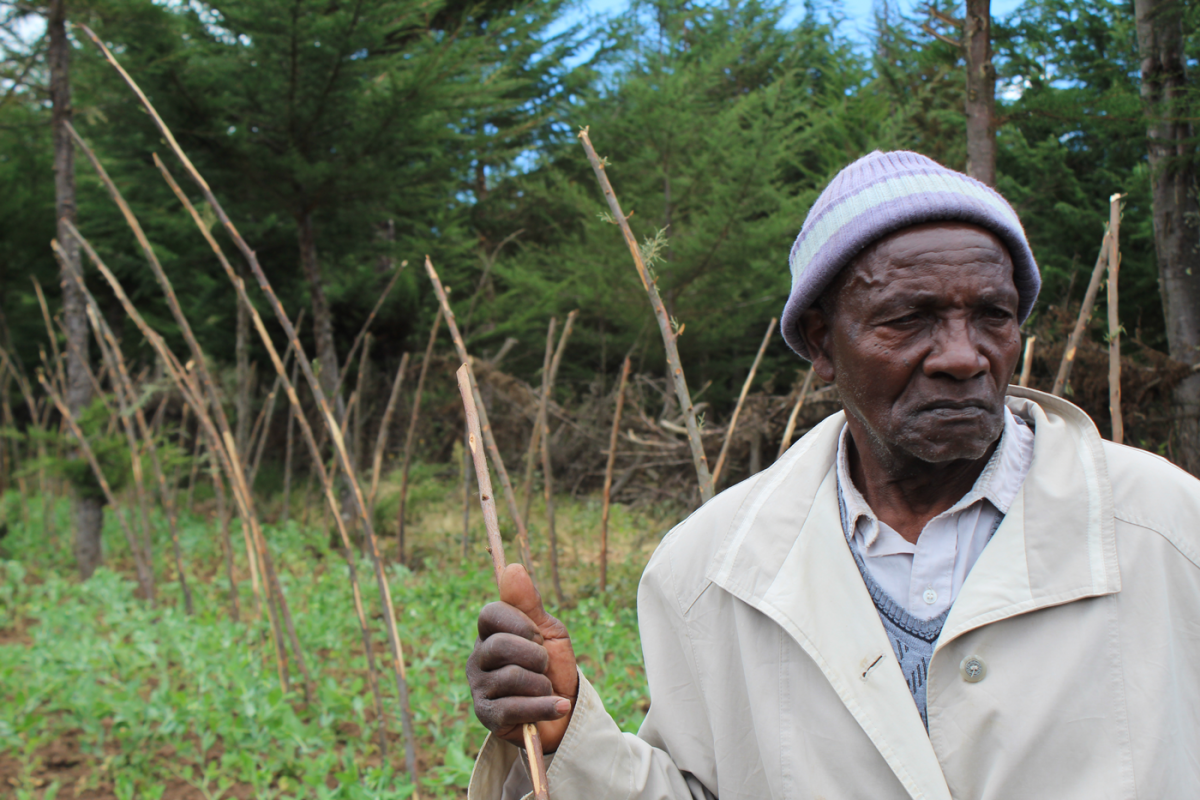Modern food systems and family farming
One in five people are family farmers. That’s a lot of people with tremendous collective power to influence productive systems and the environment. As they organise, they bring to life the intentions of the UN Decade on Family Farming (2019-2028), which just kicked off with some innovative ideas.

Photo: IUCN / Corbett Nash
The UN Decade of Family Farming (2019-2028) officially kicked off at the World Rural Forum in Bilbao, Spain, where over 80 family farming organisations (plus NGOs and other agencies) developed an action plan to set a path for the Decade. Many of these organisations were supported by the *Forest and Farm Facility (FFF).
Family farmers and forests
Family farming involves almost 1.5 billion people worldwide. It is the foundation of much of the rural poor’s food security – not only by supplying food, but also often by generating the wood or fibre energy that cooks the food, and even the very timber for the houses in which the food is cooked. Most forest-dependent people are family farmers. These same family farmers are also key actors in managing much of the world’s remaining biodiverse natural forests. Through their sheer numbers, they have a unique power for positive change. Family farmers can collectively restore whole degraded landscapes through the forest landscape restoration approach, for example, which could help farmers adapt to climate change while sequestering carbon on a massive scale.
To catalyse development and climate action programmes for family farmers, finance is often channelled through development banks, consultancy firms and NGOs. FFF takes what it considers to be a better approach by channelling its support directly to forest and farm producer organisations to strengthen their voice, enterprise, climate contributions and social and cultural services for their members. FFF sees these organisations as major implementing agents of the Sustainable Development Goals (SDGs) and local climate action.
At the World Rural Forum, it quickly became clear how family farming organisations might help deliver on the SDGs as the participants presented the innovative solutions that their organisations provide to their members. These are not solutions-in-silos. These are integrated solutions.
During the forum, IUCN facilitated a group of family farming organisations who outlined the modern services which they provide:
- Policy influence through lobbying for agriculture that is profitable, equitable, competitive and sustainable;
- Financial support to women farmers and promotion of their rights;
- Mentoring of young farmers and support to set up their farms and businesses;
- Provision of many different technical extension services and capacity building around land use planning, cultivation, organic and other types of certification, business, financial management and technology (e.g. irrigation);
- Business support for agribusiness – access to markets and marketing, as well as support for the development of circular economies; and
- Financial service provision from setting up villages saving and loan associations, to linking (and even running) mainstream banks.
The group also discussed the need to make sure they maintain and improve the services they deliver, and emphasised their desire to improve their technical capacities, strategies and policy influencing efficiency.
The family farming representatives insisted on finding ways to increase dialogue with research institutes and non-governmental institutions, and to be more inclusive. Through better interactions with research institutes, farmers’ groups would not only build their capacity but also ensure that research would be better tailored to farmers’ needs.
Farmers’ groups with FFF reflect on the Decade
A pre-event survey asked participants to prioritise areas in which their organisations might contribute to the Decade of Family Farming. Their responses were impressive in their holistic ambition. They felt priorities spanned the following seven areas, which will form the basis of the Action Plan to strengthen or support:
- Family farming organisational capacity and governance;
- Sustainable production and related services (e.g. innovations in certification);
- Climate action and resilience through sustainable natural resource management;
- Farmer-led business incubation and financial services,
- Social protection and cultural service provision;
- Information and communication technology, knowledge sharing, and innovation; and
- Collective action and advocacy for enabling policy processes for family farming.
Family farming organisation partners met to share success stories and plans for a new phase of work that will complement the Decade of Family Farming. A wide range of policy wins and sustainable business developments by forest farm producer organisations supported by the FFF has led to expanded ambition for the next phase of the programme, including the addition of four new core partner countries (Ecuador, Ghana, Madagascar and Togo).
Among the innovative new strategies from the forum is the installation of a business incubation capacity within the family farming organisations themselves, to avoid dependence on external service providers. Another novelty is making climate resilience and social service provision targets integral to family farming organisation activities.
The Forest and Farm Facility believes that these more integrated solutions emerging in family farming organisations take a modern approach to the challenges that family farmers and the rest of world face. Moreover, the auspices of the UN Decade on Family Farming is an excellent way to keep these types of conversations and innovations flowing.
—Web story co-authored by Duncan Macqueen of IIED and Pauline Buffle of IUCN
*Forest and Farm Facility is a global partnership between the Food and Agriculture Organization of the UN (FAO), International Institute for Environment and Development (IIED), International Union for Conservation of Nature (IUCN), and AgriCord that aims to promote sustainable forest and farm management by supporting local, national, regional and international forest and farm producer organisations for improved livelihoods and decision-making over forest and farm landscapes.



